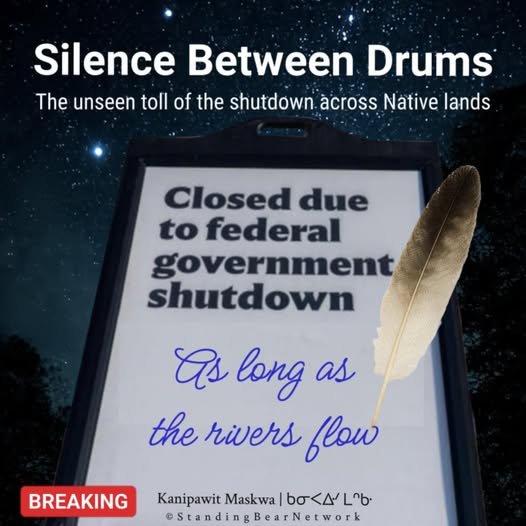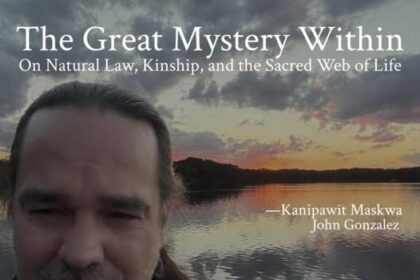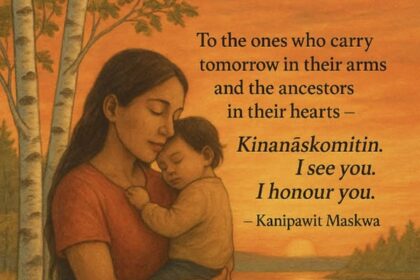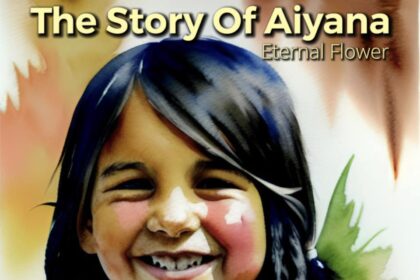When the government stops, it is not the land that pauses.
Askîy still breathes. The rivers still sing. But our people — oh, our people feel the quiet weight of that pause.
You see, they call it a shutdown, but for us, it is more like a breaking of promises — again.
For generations, these agreements — treaties, they say — were meant to bind nations in respect.
But when the money stops flowing, the medicine stops flowing too.
Clinics close their doors early. Schools run short on supplies.
A grandmother waits for her check to buy wood for the fire.
A child misses a meal at school.
And somewhere, a community worker is told to “hold on until next week.”
But êkwa tâpwê, my grandchildren — the spirit doesn’t wait for the budget to pass.
When they say “non-essential services,”
I ask them — is water non-essential? Is healing? Is a child’s laughter?
Miyo-pimâtisiwin — the good life — depends on balance.
And when that balance is broken, our spirit works twice as hard to keep us upright.
Our treaties were never meant to depend on partisan fights in faraway cities.
They were sacred covenants — wîtaskêwin — living together in peace.
But when those who signed forget their word,
we must remember ours.
We keep helping each other.
We share what little we have.
We light the lodge even when the lamps go out.
Because this, my relatives, is the Cree way —
wâhkôhtowin, relationship.
When one thread frays, the others tighten to hold it in place.
So, even as this shutdown drags on, I say:
don’t let your heart shut down too.
Keep the circle strong.
Help the ones beside you.
Speak kindly to the ones who are tired.
And remember — this world has survived many governments,
but it has never survived without love.
êkosi.
—Kanipawit Maskwa











